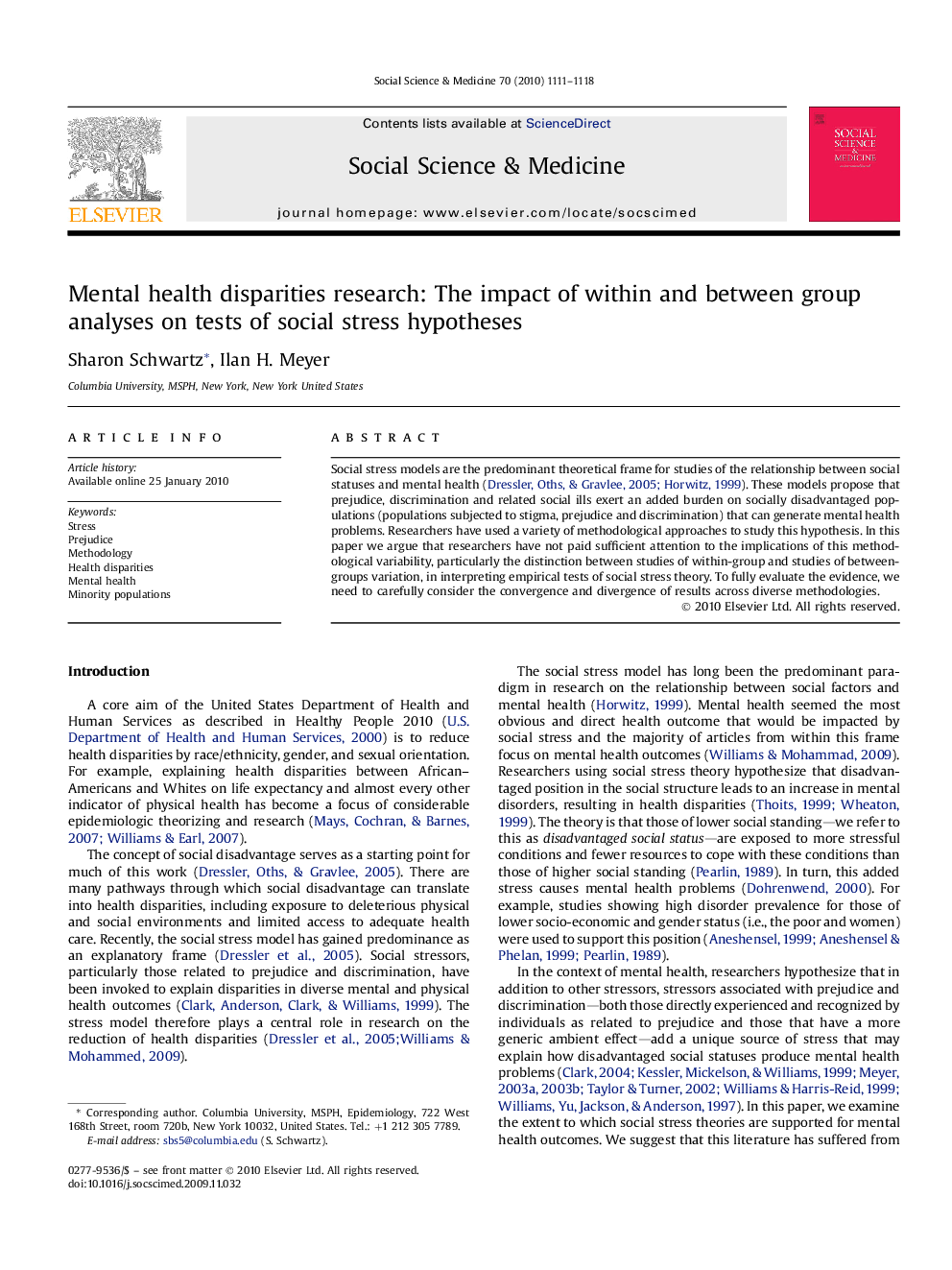| Article ID | Journal | Published Year | Pages | File Type |
|---|---|---|---|---|
| 10472020 | Social Science & Medicine | 2010 | 8 Pages |
Abstract
Social stress models are the predominant theoretical frame for studies of the relationship between social statuses and mental health (Dressler et al., 2005, Horwitz, 1999). These models propose that prejudice, discrimination and related social ills exert an added burden on socially disadvantaged populations (populations subjected to stigma, prejudice and discrimination) that can generate mental health problems. Researchers have used a variety of methodological approaches to study this hypothesis. In this paper we argue that researchers have not paid sufficient attention to the implications of this methodological variability, particularly the distinction between studies of within-group and studies of between-groups variation, in interpreting empirical tests of social stress theory. To fully evaluate the evidence, we need to carefully consider the convergence and divergence of results across diverse methodologies.
Related Topics
Health Sciences
Medicine and Dentistry
Public Health and Health Policy
Authors
Sharon Schwartz, Ilan H. Meyer,
